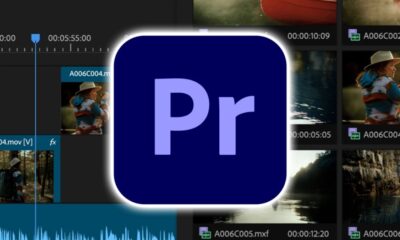Business
PragerU’s Ideological Debates for History and Race
PragerU has been at the center of disputes over how history and race are presented in educational and political discourse. Critics argue that its videos distort historical narratives about slavery, racism, the Southern Strategy, immigration, and even fascism.
Detractors contend that PragerU minimizes American culpability in slavery, promotes revisionist interpretations of political realignment in the South, and advances rhetoric that resembles anti-immigrant or far-right ideology.
Accusations of white supremacy or subtle promotion of “white culture” have appeared in academic commentary and activist reports. PragerU, however, denies these charges, framing its content as historically grounded and ideologically distinct from extremism.
One of the most frequent criticisms is that PragerU downplays the horrors of slavery in the United States. Historians such as Tyler Parry argue that its content emphasizes Western abolition as a moral triumph while failing to sufficiently acknowledge the suffering of the enslaved.
PragerU’s response is that slavery was a universal institution practiced across civilizations for millennia and that highlighting the role of Western societies in ending it is a legitimate and factually correct emphasis.
The organization maintains that acknowledging the global context does not excuse American slavery but places it within a broader historical framework. Videos have explicitly described slavery as a terrible institution, while also explaining the exceptional role of Western legal and moral traditions in abolition.
The debate over the “Southern Strategy” provides another flashpoint. In PragerU’s presentation by Carol Swain, a Black scholar and former Vanderbilt professor, the argument is made that the Republican Party’s success in the South after the 1960s was not primarily the result of appealing to racist voters.
Swain emphasizes economic development, religion, and cultural conservatism as major factors in Southern realignment, noting that much of the South remained Democratic for decades after the Civil Rights Act. Critics such as historian Kevin Kruse insist that racial politics played a defining role and describe Swain’s interpretation as cherry-picked.
PragerU argues that its version reflects an academically supported viewpoint, citing works such as Richard Johnston and Byron Shafer’s study of Southern politics, which identifies economic development as a key driver of partisan change. For PragerU, disagreement among historians is not misinformation but a reflection of interpretive debates.
Immigration and identity are also prominent in PragerU’s contested content. Its video “The Suicide of Europe,” featuring British author Douglas Murray, argued that uncontrolled immigration and lack of assimilation were undermining European societies.
Organizations such as the Southern Poverty Law Center labeled the video a “dog whistle” to the extreme right, while the Anti-Defamation League’s Mark Pitcavage described it as anti-immigrant and anti-Muslim rhetoric.
PragerU responds that Murray’s analysis shows concerns shared widely across Europe, where governments themselves have since tightened immigration controls. It argues that describing such positions as extremist dismisses mainstream democratic debates over sovereignty, culture, and integration.
Accusations that PragerU subtly promotes white supremacy or portrays white culture as superior are also part of the scholarly criticism. Sociologist Pam Nilan and others argue that by celebrating Western civilization, PragerU effectively elevates white identity.
The organization counters that its content promotes universal values such as liberty, equality, and democracy, which are not racially defined. It points to presenters such as Amala Ekpunobi and Ayaan Hirsi Ali as evidence of a diverse set of voices advocating for these ideals.
In PragerU’s view, accusations of hidden extremism misinterpret its defense of Western values as racial rather than ideological. On the subject of fascism, PragerU has also been accused of distortion. Some scholars argue its videos blur definitions in ways that absolve the political right of association with fascist traditions.
PragerU rejects this claim, noting that it has produced content explicitly condemning the alt-right, white nationalism, and antisemitism, including Michael Knowles’s video “Why the Alt-Right Is Not Conservative.” For PragerU, this material demonstrates a clear disavowal of far-right extremism.
The sources supporting these opposing views promote divide. Critics rely on academic commentaries, activist reports from organizations such as SPLC and GLAAD, and opinion columns in mainstream outlets. PragerU cites historical research from academic presses, government statistics, and direct testimony from its diverse presenters.
Critics accuse it of revisionism and coded bigotry, while PragerU insists it provides context, diversity of thought, and a challenge to dominant progressive narratives. The divide reflects not only competing views of history but also competing understandings of the role ideology should play in education.
Disclaimer: This is a sponsored piece of content. Time Bulletin journalists or editorial staff were not involved in the production or writing of this content.
-

 Business4 days ago
Business4 days agoCorporate Social Responsibility in Action: Amerilodge’s Support of Health and Education Causes
-

 Tech2 weeks ago
Tech2 weeks agoAdobe Releases New AI-powered Video Editing Tools for Premiere and After Effects with Significant Motion Design Updates
-

 Sports4 weeks ago
Sports4 weeks agoUnited Cup 2026: Full Schedule, Fixtures, Format, Key Players, Groups, Teams, Where and How to Watch Live
-

 Book4 weeks ago
Book4 weeks agoAuthor, Fighter, Builder: How Alan Santana Uses His Life Story to Empower the Next Generation Through UNPROTECTED
-

 Business3 weeks ago
Business3 weeks agoSpartan Capital Publishes 2026 Economic Outlook, Highlighting Volatility, Resilience, and Emerging Opportunities
-

 Startup3 weeks ago
Startup3 weeks agoCraig Bonn’s Guide for Spotting a Winning Pre-IPO Early
-

 Tech3 weeks ago
Tech3 weeks agoGoogle Introduces New Updates to Its Veo AI Video Generation Tool
-

 Business3 weeks ago
Business3 weeks agoJohn Dianastasis Elaborates on the Value of Discretion in High-Level Consulting and Public Affairs Work










